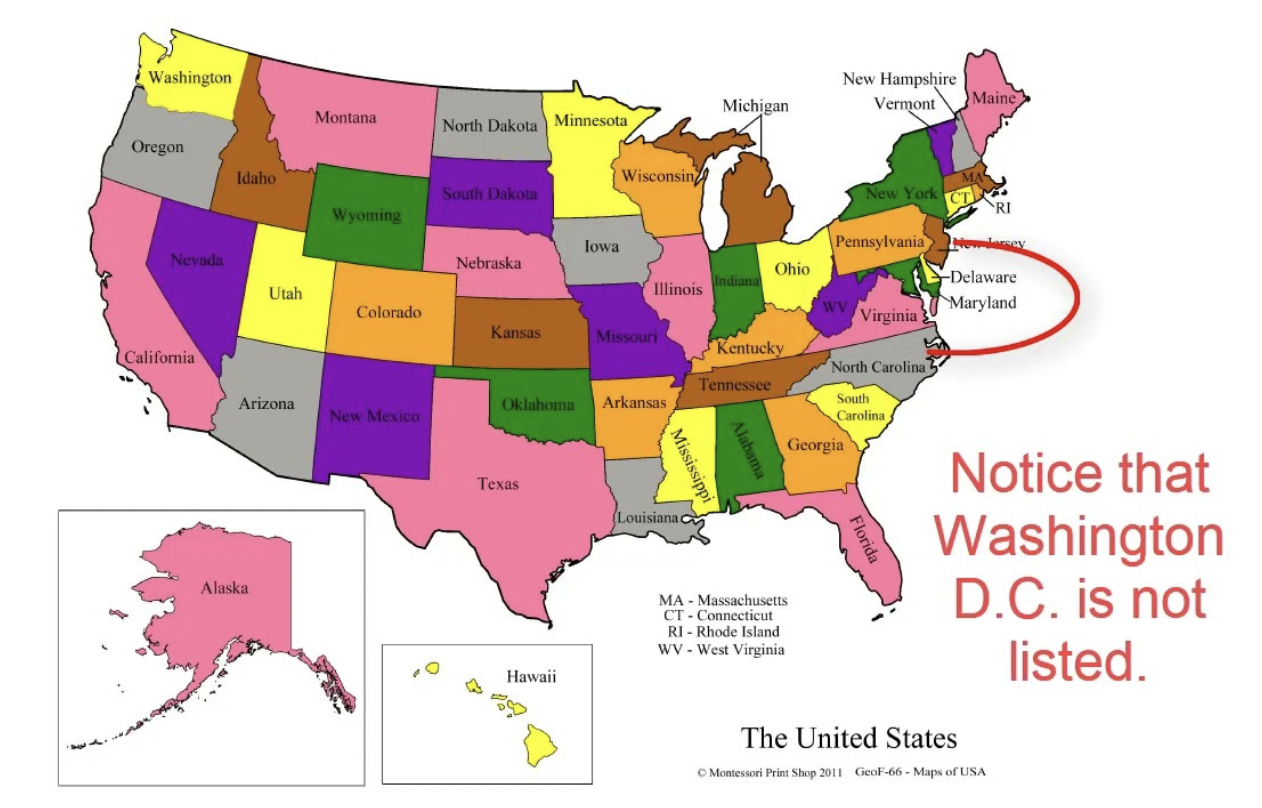Uniform Commercial Code (U.C.C.) § 1-201. General Definitions:
(4) “Bank” means a person engaged in the business of banking and includes a savings bank, savings and loan association, credit union, and trust company.
Uniform Commercial Code (U.C.C.) § 4-105. “BANK”; “DEPOSITARY BANK”; “PAYOR BANK”; “INTERMEDIARY BANK”; “COLLECTING BANK”; “PRESENTING BANK”:
(1) “Bank” means a person engaged in the business of banking, including a savings bank, savings and loan association, credit union, or trust company.
(2) “Depositary bank” means the first bank to take an item even though it is also the payor bank, unless the item is presented for immediate payment over the counter;
(3) “Payor bank” means a bank that is the drawee of a draft
(4) “Intermediary bank” means a bank to which an item is transferred in course of collection except the depositary or payor bank
(5) “Collecting bank” means a bank handling an item for collection except the payor bank
(6) “Presenting bank” means a bank presenting an item except a payor bank.
12 U.S. Code § 221a – Additional definitions:
(a) The terms “banks”, “national bank”, “national banking association”, “member bank”, “board”, “district”, and “reserve bank” shall have the meanings assigned to them in section 221 of this title.
Black’s Law Dictionary 1st Edition, pages 117-118:
1. A bench or seat; the bench or tribunal occupied by the judge judges; the seat of judgement’ a court. The full bench, or full court; the assembly of all the judges of a court. A “sitting in bank” is a meeting of all the judges of a court, usually for the purpose of hearing arguments on demurrers, points reserved, motion for new trial, etc., as distinguished from the sitting of a single judge at the assises or a nisi prius and from trials at bar. But, in this sense, banc is the more usual form of the word.
2. An institution, of great value in the commercial world, empowered to receive deposits of money, to make loans. and to issue its promissory notes, (designed to circulate as money, and commonly called “bank-notes” or “bank-bills” ) or to perform any one or more of these functions.
The term “bank” is usually restricted in its application to an incorporated body; while a private individual making it his business to conduct banking operations is denominated a “banker.”
Also the house or place where such business is carried on.
Banks in a commercial sense are of three kinds, to wit; (1) Of deposit; (2) of discount; (3) of circnlation. Stricly speaking, the term “bank” implies a place for the deposit of money, as that is the most obvious purpose of such an institution. Originally the business of banking consisted only in receiving deposits, such as bullion, plate, and the like, for safe-keeping until the depositor should see fit to draw it out for use, but the pusiness, in the program of vents, was extended, and bankers assumed to discount bills and notes, and to loan money upon mortgage, pawn, or other security, and, at a still later period, to issue nots of their own, intended as a circulating currency and a medium of exchange, instead of gold and silver. Modern bankers frequently exercise any two or even all three of those functions, but it is still true that an institution prohibited from exercising any more than one of hose functions is a bank, in the strictest commercial sense. 17 Wall. 118; Rec. St. U.S. § 3407.
3. An acclivity; an elevation of mound of earth; usually applied in this sense to the raised earth bordering the side of a water course.
Black’s Law Dictionary 2nd Edition, pages 116-117:
“1. A bench or seat; the bench or tribunal occupied by the judges; the seat of judgment; a court. The full bench, or full court; the assembly of all the judges of court. A “sitting in bank” is a meeting of all the judges of a court, usually for the purpose of hearing arguments on demurrers, points reserved, motions for new trial, etc., as distinguished from the sitting of a single judge at the assises or at nini prius and from trials, at bar. But, in this sense, banc is the more usual form of the word.
2. An institution, of great value in the commercial world, empowered to receive deposits of money, to make loans. and to issue its promissory notes, (designed to circulate as money, and commonly called “bank-notes” or “bank-bills” ) or to perform any one or more of these functions.
The term “bank” is usually restricted in its application to an incorporated body; while a private individual making it his business to conduct banking operations is denominated a “banker.”
Hobbs v. Bank, 101 Fed. 75, 41 C. C. A. 205; Kiggins v. Munday, 19 Wash. 233, 52 Pac. 855; Rominger v. Keyes, 73 Ind. 377; Oulton v. Loan Soc., 17 Wall 117, 21 L. Ed. 618; Hamilton Nat. Bank v. American L. & T. Co., 66 Neb. 67, 92 N. W. 190; Wells, Fargo & Co. v. Nothern Pac. R Co. (C. C.) 23 Fed. 469.
Also the house or place where such business is carried on.
Banks in a commercial sense are of three kinds, to wit; (1) Of deposit; (2) of discount; (3) of circnlation. Stricly speaking, the term “bank” implies a place for the deposit of money, as that is the most obvious purpose of such an institution. Originally the business of banking consisted only in receiving deposits, such as bullion, plate, and the like, for safe-keeping until the depositor should see fit to draw it out for use, but the pusiness, in the program of vents, was extended, and bankers assumed to discount bills and notes, and to loan money upon mortgage, pawn, or other security, and, at a still later period, to issue nots of their own, intended as a circulating currency and a medium of exchange, instead of gold and silver. Modern bankers frequently exercise any two or even all three of those functions, but it is still true that an institution prohibited from exercising any more than one of hose functions is a bank, in the strictest commercial sense. Oulton v. German Sav. & L. Soc., 17 Wall. 118, 21 L. Ed 618; Rev. St. U. S. § B407. (U.S. Comp. St. 901, p. 2246)
3. An acclivity; an elevation of mound of earth; usually applied in this sense to the raised earth bordering the side of a water course.”
Black’s Law Dictionary 4th Edition, pages 183-184:
” A bench or seat; the bench of justice; the bench or tribunal occupied by the judges; the seat of judgment; a court. The full bench, or full court; the assembly of all the judges of a court.
A “sitting in bank” is a meeting of all the judges of a court, usually for the purpose of hearing arguments on demurrers, points reserved, motions for new trial, and other law points, as distinguished from the sitting of a single judge at the assises or at nisi prius and from trials at bar to determine facts. 3 Bla.Comm. 28, n. But in this sense, banc is perhaps the more usual form of the word. “Sitting in bank” is also described as an official meeting of four of the judges of a common-law court. Wharton, Lex.
Bank le Roy. The king’s bench. Finch, 198. An acclivity; an elevation or mound of earth, especially that which borders the sides of a water course.
The land adjacent to a river. Graham v. Knight, Tex. Civ.App., 240 S. W. 981, 983.
That part of a stream which retains the water. Dawson County v. Phelps County, 94 Neb. 112, 142 N.W. 697, 699.
The elevation of land which confines the waters of a stream in their natural channel when they rise the highest and do not overflow the banks. Department of Health of New Jersey v. Chemical Co. of America, 90 N.J.Eq. 425, 107 A. 164, 166. A water-washed and relatively permanent elevation or acclivity at the outer line of a river bed which separates the bed from the adjacent upland, and serves to confine the waters within the bed and to preserve the course of the river. State of Oklahoma v. State of Texas, 43 S.Ct. 221, 260 U.S. 606, 67 L.Ed. 428; Horton v. Niagara, Lockport & Ontario Power Co., 247 N.Y.S. 741, 745, 231 App.Div. 386. The land lying between the edge of the water of a stream at its ordinary low stage and the line which the edge of the water reaches in its ordinary high stage. Wemple v. Eastham, 150 La. 247, 90 So. 637, 638. An elevation of land which confines the waters of a stream when they rise out of the bed. Neither the line of ordinary high-water mark, nor of ordinary low-water mark, nor of a middle stage of water can be assumed as the line dividing the bed from the banks. Banks are fast land, on which vegetation appropriate to such land in the particular locality grows wherever the bank is not too steep to permit such growth, and bed is soil of a different character, and having no vegetation, or only such as exists, when commonly submerged in water. State v. Nolegs, 139 P. 943, 946, 40 Okl. 479. On the borders of navigable streams, where there are levees established according to law, the levees form the “banks of the river.” Ward v. Board of Levee Com’rs of Orleans Levee Dist., 152 La. 158, 92 So. 769, 772.
An institution, of great value in the commercial world, empowered to receive deposits of money, to make loans, and to issue its promissory notes, (designed to circulate as money, and commonly called “bank-notes” or “bank-bills,”) or to perform any one or more of these functions. State v. Wagner, 202 Iowa, 739, 210 N.W. 901, 902; People v. Bartow, 6 Cow.N.Y. 290; Dearborn v. North- western Savings Bank, 42 Ohio St. 617; In re Prudence Co., D.C.N.Y., 10 F.Supp. 33, 36.
An institution, usually incorporated with power to issue its promissory notes intended to circulate as money (known as bank notes) ; or to receive the money of others on gen- eral deposit, to form a joint fund that shall be used by the institution, for its own benefit, for one or more of the pur- poses of making temporary loans and discounts ; of deal- ing in notes, foreign and domestic bills of exchange, coin, bullion, credits, and the remission of money; or with both these powers, and with the privileges, in addition to these basic powers, of receiving special deposits and making col- lections for the holders of negotiable paper, if the institu- tion sees fit to engage in such business. State of Kansas ex rel. Boynton v. Hayes, C.C.A.Kan., 62 F.2d 597, 600. The term “bank” is usually restricted in its application to an incorporated body; while a private individual mak- ing it his business to conduct banking operations is gen- erally denominated a “banker.” Hobbs v. Bank, C.C.A. N.Y., 101 F. 75, 41 C.C.A. 205; Wells, Fargo & Co. v. Northern Pac. R. Co., C.C.Or., 23 F. 469.
The house or place where the business of bank- ing is carried on.
Banks in the commercial sense are of three kinds, viz. : (1) of deposit; (2) of discount; (3) of circulation. Strict- ly speaking, the term “bank” implies a place for the deposit of money, as that is the most obvious purpose of such an institution. Originally the business of banking consisted only in receiving deposits, such as bullion, plate, and the like, for safe-keeping until the depositor should see fit to draw it out for use, but the business, in the progress of events, was extended, and bankers assumed to discount bills and notes, and to loan money upon mort- gage, pawn, or other security, and, at a still later period, to issue notes of their own, intended as a circulating cur- rency and a medium of exchange, instead of gold and sil- ver. Modern bankers frequently exercise any two or even all three of those functions, but it is still true that an in- stitution prohibited from exercising any more than one of those functions is a bank, in the strictest commercial sense. Oulton v. German Say. & L. Soc., 17 Wall. 118, 21 L.Ed. 618; Millikan v. Security Trust Co., 118 N.E. 568, 569, 187 Ind. 307; Rev.St.U.S. § 3407 (12 USCA § 561).”
Black’s Law Dictionary 7th Edition, pages 139-140:
1. A financial establishment for the depos- it, loan, exchange, or issue of money and for the transmission of funds; esp., a member of the Federal Reserve System.• Under securities law, a bank includes any banking institution, whether or not incorporated, doing business under federal or state law, if a substantial portion of the institution’s business consists of receiving deposits or exercising fiduciary pow- ers similar to those permitted to national banks and if the institution is supervised and exam- ined by a state or federal banking authority; or a receiver, conservator, or other liquidating agent of any of the above institutions. 15 USCA § 78c(a)(6). 2. The office in which such an establishment conducts transactions.
“A bank is a quasi public institution, for the custody and loan of money, the exchange and transmission of the same by means of bills and drafts, and the issuance of its own promissory notes, payable to bearer, as currency, or for the exercise of one or more of these functions, not always necessarily chartered, but sometimes so, created to subserve public ends, or a financial institution regu- 1ated by law …. A bank is wholly a creature of statute doing business by legislative grace and the right to carry on a banking business through the agency of a corpora- tion is a ‘franchise’ which is dependent on a grant of corporate powers by the state.” 1A Michie on Banks and Banking § 2, at 5-6 (1993).
bank for cooperatives. A bank within a system of banks established to provide a per- manent source of credit to farmers’ coopera- tives and supervised by the Farm Credit Ad- ministration.
collecting bank. In the check-collection pro- cess, any bank handling an item for collec- tion, except for the payor bank or the deposi- tary bank. UCC § 4-105(5).
commercial bank. A bank authorized to receive both demand and time deposits, to engage in trust services, to issue letters of credit, to rent time-deposit boxes, and to pro- vide similar services.
correspondent bank. A bank that acts as an agent for another bank, or engages in an exchange of services with that bank, in a geographical area to which the other bank does not have direct access.
custodian bank. A bank or trust company that acts as custodian for a clearing corpora- tion and that is supervised and examined by a state or federal authority. UCC § 8-102(4).
depositary bank. The first bank to which an item is transferred for collection. UCC § 4-105(2).
drawee bank. See payor bank.
Federal Home Loan Bank. See FEDERAL HOME LOAN BANK.
federal land bank. See FEDERAL LAND BANK.
intermediary bank. A bank to which an item is transferred in the course of collection, even though the bank is not the depositary or payor bank. UCC § 4-105(4).
investment bank. A bank whose primary purpose is to acquire financing for businesses, esp. through the sale of securities.• An in- vestment bank does not accept deposits and, apart from selling securities, does not deal with the public at large. See INVESTMENT BANKER.
member bank. A bank that is a member of the Federal Reserve System. – Also termed reserve bank. See FEDERAL RESERVE SYSTEM.
mutual savings bank. A bank that has no capital stock and in which the depositors are the owners. See SA VINGS-AND-LOAN ASSOCIA- TION.
national bank. A bank incorporated under federal law and governed by a charter ap- proved by the Comptroller of the Currency. • A national bank is permitted to use the ab- breviation n.a. (national association) as part of its name.
nonbank bank. A financial institution that either accepts demand deposits or makes commercial loans, but, unlike banks, does not do both at the same time and therefore can avoid federal regulations on bank ownership. • Nonbank banks were esp. prolific in the 1980s, but amendments to the definition of a bank under federal law have essentially closed this loophole.
nonmember bank. A bank that is not a member of the Federal Reserve System. See FEDERAL RESERVE SYSTEM.
payor bank. A bank that is requested to pay the amount of a negotiable instrument and, on the bank’s acceptance, is obliged to pay that amount; a bank by which an item is payable as drawn or accepted. DCC § 4-105(3). – Also termed drawee bank.
presenting bank. A nonpayor bank that presents a negotiable instrument for pay- ment. DCC § 4-105.
private bank. An unincorporated banking institution owned by an individual or partner- ship and, depending on state statutes, subject to or free from state regulation.
remitting bank. A payor or intermediary bank that pays or transfers an item.
reserve bank. See member bank.
respondent bank. A bank, association, or other entity that exercises fiduciary powers, that holds securities on behalf of beneficial owners, and that deposits the securities for safekeeping with another bank, association, or other entity exercising fiduciary powers. SEC Rule 14a-1(k) (17 CFR § 240.14a-lCk».
savings-and-Ioan bank. See SAVINGS-AND- LOAN ASSOCIATION.
savings bank. A bank that receives deposits, pays interest on them, and makes certain types of loans, but does not provide checking services.
state bank. A bank chartered by a state and supervised by the state banking department. • For a state bank to have FDIC insurance on deposits, it must become a member of the Federal Reserve System.
bank, vb. 1. To keep money at <he banks at the downtown branch>. 2. To deposit (funds) in a bank <she banked the prize money yester- day>. 3. Slang. To loan money to facilitate (a transaction) <who banked the deal?> . • The lender’s consideration usu. consists of a fee or an interest in the property involved in the transaction.”
Black’s Law Dictionary 8th Edition, pages 437-439:
1. A financial establishment for the deposit, loan, exchange, or issue of money and for the transmission of funds; esp., a member of the Federal Reserve System. • Under securities law, a bank includes any banking institution, whether or not incorporated, doing business under federal or state law, if a substantial portion of the institution’s business consists of receiving deposits or exercising fiduciary powers similar to those permitted to national banks and if the institution is supervised and examined by a state or federal banking authority; or a receiver, conservator, or other liquidating agent of any of the above institutions. 15 USCA § 78c(a)(6). [Cases: Banks and Banking 1, 232, 289. C.J.S. Banks and Banking §§ 6, 482–483, 599–600.] 2. The office in which such an establishment conducts transactions.
“A bank is a quasi public institution, for the custody and loan of money, the exchange and transmission of the same by means of bills and drafts, and the issuance of its own promissory notes, payable to bearer, as currency, or for the exercise of one or more of these functions, not always necessarily chartered, but sometimes so, created to subserve public ends, or a financial institution regulated by law …. A bank is wholly a creature of statute doing business by legislative grace and the right to carry on a banking business through the agency of a corporation is a ‘franchise’ which is dependent on a grant of corporate powers by the state.” 1A Michie on Banks and Banking§ 2, at 5–6 (1993).
bank for cooperatives.A bank within a system of banks established to provide a permanent source of credit to farmers’ cooperatives and supervised by the Farm Credit Administration. [Cases: Banks and Banking 401–409. C.J.S. Banks and Banking §§ 665–666.]
collecting bank.In the check-collection process, any bank handling an item for collection, except for the payor bank or the depository bank. UCC § 4-105(5). [Cases: Banks and Banking 156–163. C.J.S. Banks and Banking §§ 317, 319, 322, 327, 382–400, 402, 404, 407, 409–410, 414.]
commercial bank.A bank authorized to receive both demand and time deposits, to engage in trust services, to issue letters of credit, to rent time-deposit boxes, and to provide similar services.
correspondent bank.A bank that acts as an agent for another bank, or engages in an exchange of services with that bank, in a geographical area to which the other bank does not have direct access.
custodian bank.A bank or trust company that acts as custodian for a clearing corporation and that is supervised and examined by a state or federal authority.
depositary bank.The first bank to which an item is transferred for collection. UCC § 4-105(2). [Cases: Banks and Banking 120, 121, 137, 158. C.J.S. Banks and Banking §§ 272–276, 322, 328, 330, 383, 395–397, 399, 402, 404.]
drawee bank.See payor bank.
Federal Home Loan Bank.See FEDERAL HOME LOAN BANK.
federal intermediate credit bank.One of a system of 12 regional banks created in 1923 to discount obligations of agricultural credit corporations and similar institutions making short-term loans to farmers and ranchers. • The system is now merged with federal land banks to create the federal farm-credit system. [Cases: United States 53(7). C.J.S. United States §§ 90, 92–93.]
federal land bank.See FEDERAL LAND BANK.
intermediary bank.A bank to which an item is transferred in the course of collection, even though the bank is not the depositary or payor bank. UCC § 4-105(4).
investment bank.A bank whose primary purpose is to acquire financing for businesses, esp. through the sale of securities. • An investment bank does not accept deposits and, apart from selling securities, does not deal with the public at large. See INVESTMENT BANKER. [Cases: Brokers 2. C.J.S. Brokers §§ 2–5.]
member bank.A bank that is a member of the Federal Reserve System. — Also termed reserve bank. See FEDERAL RESERVE SYSTEM. [Cases: Banks and Banking 359. C.J.S. Banks and Banking §§ 661–662.]
mutual savings bank.A bank that has no capital stock and in which the depositors are the owners. See SAVINGS-AND-LOAN ASSOCIATION. [Cases: Banks and Banking 289; Building and Loan Associations 1. C.J.S. Banks and Banking §§ 599–600; Building and Loan Associations, Savings and Loan Associations, and Credit Unions §§ 2–4.]
national bank.A bank incorporated under federal law and governed by a charter approved by the Comptroller of the Currency. • A national bank is permitted to use the abbreviation N.A. (national association) as part of its name. [Cases: Banks and Banking 232, 238. C.J.S. Banks and Banking §§ 482–483, 496.]
negotiating bank.A financial institution that discounts or purchases drafts drawn under a letter of credit issued by another bank. [Cases: Banks and Banking 191. C.J.S. Bills and Notes; Letters of Credit §§ 341–366, 368–370, 372–376.]
nonbank bank.A financial institution that either accepts demand deposits or makes commercial loans, but, unlike banks, does not do both at the same time and therefore can avoid federal regulations on bank ownership. • Nonbank banks were esp. prolific in the 1980s, but amendments to the definition of a bank under federal law have essentially closed this loophole.
nonmember bank.A bank that is not a member of the Federal Reserve System. See FEDERAL RESERVE SYSTEM.
payor bank.A bank that is asked to pay the amount of a negotiable instrument and, on the bank’s acceptance, is obliged to pay that amount; a bank by which an item is payable as drawn or accepted. • Because the bank is the drawee of a draft, it is also termed a drawee bank. UCC § 4-105(3). [Cases: Banks and Banking 137, 158. C.J.S. Banks and Banking §§ 322, 328, 330, 383, 395–397, 399, 402, 404.]
presenting bank.A nonpayor bank that presents a negotiable instrument for payment. UCC § 4-105(6). [Cases: Banks and Banking 158. C.J.S. Banks and Banking §§ 322, 383, 395–397, 399, 402, 404.]
private bank.An unincorporated banking institution owned by an individual or partnership and, depending on state statutes, subject to or free from state regulation.
remitting bank.A payor or intermediary bank that pays or transfers an item.
reserve bank.See member bank.
respondent bank.A bank, association, or other entity that exercises fiduciary powers, that holds securities on behalf of beneficial owners, and that deposits the securities for safekeeping with another bank, association, or other entity exercising fiduciary powers. SEC Rule 14a-1(k) (17 CFR § 240.14a-1(k)).
savings-and-loan bank.See SAVINGS-AND-LOAN ASSOCIATION.
savings bank.A bank that makes primarily home mortgage and some other consumer loans, receives deposits and pays interest on them, and may offer checking accounts. • Historically, savings banks did not provide any checking services. [Cases: Banks and Banking 289. C.J.S. Banks and Banking §§ 599–600.]
state bank.A bank chartered by a state and supervised by the state banking department. • For a state bank to have FDIC insurance on deposits, it must become a member of the Federal Reserve System. [Cases: Banks and Banking 2–6. C.J.S. Banks and Banking §§ 2–5, 7–9, 15–18.]
bank,vb. 1. To keep money at <he banks at the downtown branch>.2. To deposit (funds) in a bank <she banked the prize money yesterday>.3.Slang. To loan money to facilitate (a transaction) <who banked the deal?>. • The lender’s consideration usu. consists of a fee or an interest in the property involved in the transaction.”







Recent Comments